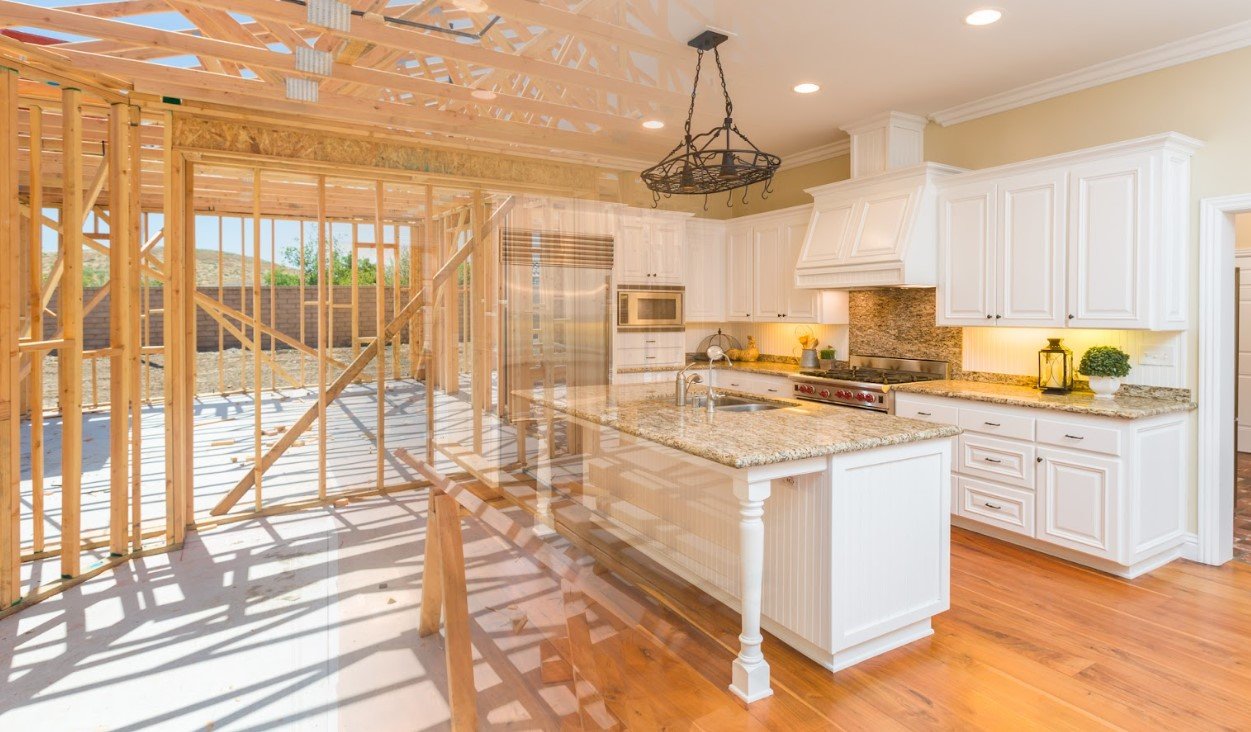Home Improvement
10 Tips For Building Your Custom Home Without Breaking The Bank

Building a custom home is a dream for many, offering the unique opportunity to tailor every aspect of a living space to your personal preferences and lifestyle needs. However, the process can quickly become daunting, especially considering the financial aspect. Staying within budget while creating your dream home requires careful planning, smart decision-making, and a bit of creativity.
Here are essential tips for constructing your custom abode without draining your financial resources.
-
Understand Your Budget Inside And Out
The first step in avoiding financial overreach is a crystal-clear understanding of your budget. This means knowing your total budget and how it’s allocated across different build categories. Allocate funds for the land purchase, construction costs, interior finishes, landscaping, and a buffer for unforeseen expenses. Sticking to your budget requires discipline and flexibility.
-
Choose The Right Partners
The selection of a skilled and reliable custom home builder is a cornerstone of a successful and budget-friendly construction project. This choice extends beyond the builder to include architects, designers, and subcontractors, who should share your vision and budgetary constraints.
An ideal partner combines expertise, value, and communication, ensuring efficient and innovative project outcomes. Transparent pricing and a collaborative approach can prevent costly misunderstandings and ensure your project reflects your desires without unnecessary expense.
-
Prioritize Your Needs And Wants
Distinguishing between must-haves and nice-to-haves is key to managing your budget in custom home building. Essentials should cater to your daily comfort and functionality, aligning with your lifestyle and the home’s long-term value. Non-essentials, while potentially enhancing aesthetics or luxury, should be evaluated for their impact on the budget and deferred if necessary. This prioritization ensures resources go where they most improve your quality of life, avoiding overspending on fleeting trends or unneeded features.
-
Embrace Simplicity In Design
A minimalist approach to design can yield significant savings without sacrificing style or comfort. Reduce construction and maintenance costs by focusing on clean lines, open floor plans, and multipurpose spaces. This philosophy encourages using fewer but higher-quality materials, simplifying the construction process, and potentially lowering labor costs.
Moreover, a simple yet thoughtful design can provide timeless appeal, ensuring your home remains functional and stylish for years to come, and offers a blank canvas for personal touches and future enhancements.

-
Invest In Energy Efficiency
While it might seem counterintuitive to suggest spending more in some areas, investing in energy-efficient materials and appliances can lead to significant savings in the long run. High-efficiency systems may have a higher upfront cost but can reduce utility bills and environmental impact over time. Consider features like improved insulation, energy-efficient windows, and solar panels as part of your initial build to reap financial benefits in the future.
-
Source Materials Wisely
Material costs can vary widely, so it’s important to research and source materials that offer the best value for your budget. Sometimes, this might mean choosing alternative materials that mimic the look and feel of more expensive options without the hefty price tag. Also, consider reclaimed or recycled materials for a unique, budget-friendly, and environmentally conscious aesthetic.
-
Time Your Build Right
Strategic timing can impact the cost of building a custom home. As service demand decreases, engaging contractors during the off-peak season may lead to better deals. This strategy requires a careful balance, as certain times of the year might introduce challenges, such as adverse weather conditions, which can delay the project and potentially increase costs. Planning your build with these factors in mind can optimize your budget and minimize delays.
-
DIY Where You Can
Embracing do-it-yourself (DIY) tasks during your home build can cut costs and infuse your home with personal pride and uniqueness. Simple tasks like painting, basic installations, or even some landscaping work can be done without professional help, saving labor costs. This approach works best when you assess your skills and time commitment, ensuring DIY efforts benefit your project.
-
Keep Communication Open And Regular
Effective communication with your building team is crucial for the success and budget management of your custom home project. Regular updates and discussions can preempt cost overruns and misunderstandings, ensuring that any deviations from the budget are addressed promptly. This collaborative approach fosters a partnership atmosphere, where your builder is as invested in adhering to the budget as you are, working together to find cost-effective solutions and alternatives.
-
Be Prepared For The Unexpected
The complex nature of custom home building means that surprises are almost inevitable, whether from unforeseen site issues, material cost fluctuations, or unexpected regulatory requirements. Establishing a contingency fund as part of your initial budget can provide a safety net for these unpredictable expenses, reducing stress and preventing project stalls. This preparedness helps you tackle challenges without compromising your dream home’s integrity or quality.
Conclusion
Building a custom home on a budget is undoubtedly challenging, but it’s entirely possible with careful planning, strategic decision-making, and a focus on long-term value. By prioritizing what’s truly important, choosing the right partners, and staying engaged throughout the process, you can create a beautiful, customized space that meets your needs without breaking the bank.
-

 Education4 weeks ago
Education4 weeks agoColcom Foundation Furthers Cordelia Scaife May’s Values With $1 Million Dollar Investment In Education
-

 Games3 weeks ago
Games3 weeks agoLook at How Unblocked Games 67 is Revolutionizing the Gaming Industry!
-

 Real Estate2 weeks ago
Real Estate2 weeks agoAI in Real Estate: Benefits, Challenges, and 7 Use Cases
-

 Home Improvement2 weeks ago
Home Improvement2 weeks agoSmart Locks and Doorbell Systems: A Game-Changer in Home Security




